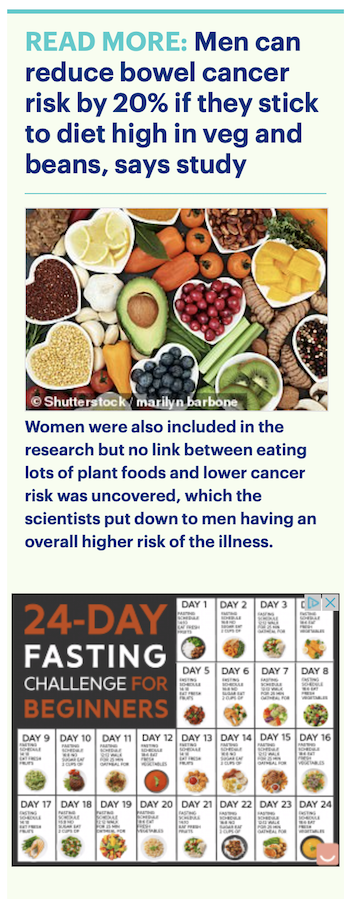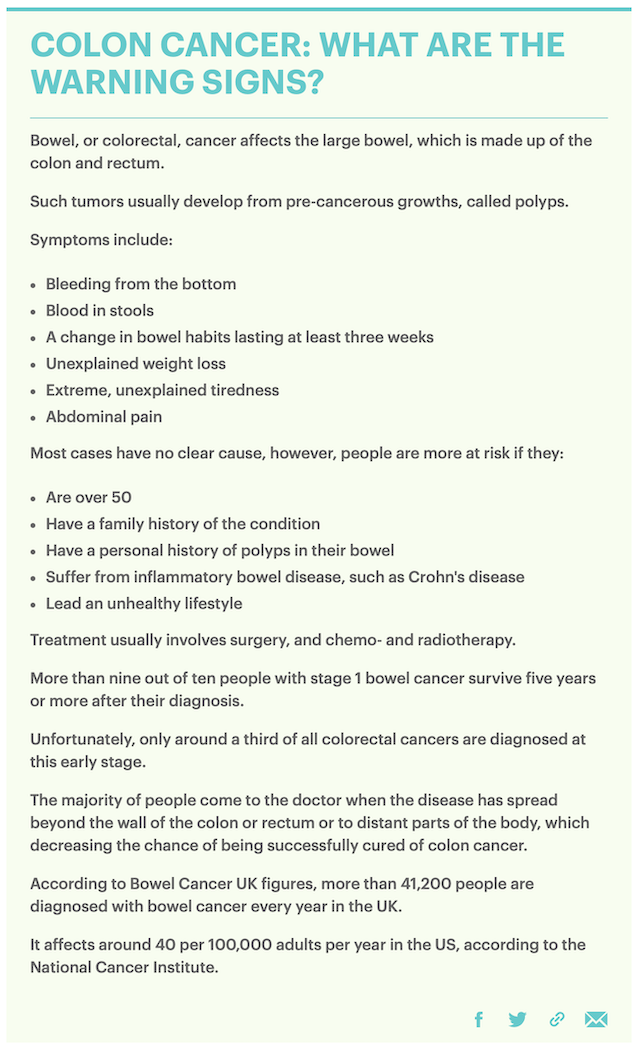Rates have doubled among under-55s since the 1990s — and experts don’t know why
A mystery spike in colon cancer cases among middle-aged and younger Americans is alarming scientists.

The above graph shows how rates of colon cancer have risen among adults aged 20 to 49. Scientists say more than 40 percent of diagnoses are among those aged 45 to 49 years old. The graph shows rates of colon cancer per 100,000 people in younger adults by stages
Data shows diagnoses among people under 55 have nearly doubled in 25 years. They make up around a fifth of all diagnoses now compared to 11 percent in 1995.
The American Cancer Society also warned that more cases are being diagnosed when the cancer has spread to other parts of the body, where it is harder to treat.
Experts are not sure what is behind the shift, but unhealthy diets, alcohol consumption and sedentary lifestyles have all been blamed for the higher rates.
But this may not explain why other cancers have remained flat or continued to tumble in under-55s at the same time, scientists say.
Actor Chadwick Boseman’s death from colon cancer in 2020 at the age of 43 drew more attention to the trend. He famously played the Black Panther in the blockbuster Marvel movie.

The above graph shows the rate of diagnoses of colon cancer in age groups over time. It shows a clear uptick in diagnoses among people aged 20 to 49 years old (top right) and an arrest in the rate among 50 to 54-year-olds (bottom left). Diagnoses are continuing to drop in those over 65 years old. The phrases localized, regional, distant and unstaged refer to the stage of colon cancer that was diagnosed
President Joe Biden has promised to halve cancer deaths in America over the next quarter century by funneling funding into diagnosis and treatment.
Cancers of the colon and rectum are the third most common type in the US and the third leading cause of death of both men and women.
It is most often diagnosed in people aged 65 to 74. Early warning signs including blood in feces, abdominal pain and unintended weight loss.
These are often missed in younger age groups, with doctors instead believing they are warning signs of another illness instead of cancer associated with the elderly.
Dr Rebecca Segel, senior scientific director of surveillance research at the American Cancer Society and lead author, said: ‘We know rates are increasing in young people.
‘But it’s alarming to see how rapidly the whole patient population is shifting younger, despite shrinking numbers in the overall population.
‘The trend toward more advanced disease in people of all ages is also surprising and should motivate everyone 45 and older to get screened.’
Dr Kimmie Ng, director of the Young-Onset Colorectal Cancer Center in Boston, Massachusetts, told the Wall Street Journal: ‘I see so many young patients who live really healthy lifestyles that get diagnosed with metastatic colon cancer.
‘There are other environmental exposures that need to be looked at.’

Data shows that diagnoses of colon cancer have nearly doubled among people under 55 years old over the past quarter of a century
In a report published today, scientists warned that the rate of colon cancer in people aged 50 nationwide was now nearly 60 per 100,000.
For comparison, between 1975 to 1979 the rate was around 40 per 100,000 – indicating a 50 percent increase in around 45 years.
About 43 percent of diagnoses were in people aged 45 to 49 years old.
Estimates suggested 19,550 colorectal cancer cases in people under 50 this year – making up around one-in-seven of the 153,000 expected overall.
There is also a rise in the number of advanced stages of colon cancer being detected across all age groups.
 Some 60 percent of diagnoses were advanced in 2019, data suggested.
Some 60 percent of diagnoses were advanced in 2019, data suggested.
For comparison, this was 52 percent in the mid-2000s and 57 percent in 1995.
Colon cancer is more common in men, with the rate 33 percent higher in the group (41.5 cases per 100,000) compared to women (31.2 per 100,000).
Experts recommend Americans aged 45 and older to be screened for colon cancer once every ten years.
This is usually a colonoscopy, where a camera is inserted into a person’s rectum, searching for growths or changes to their intestines.
Screening for the cancer is offered once every decade to check for growth signs.
In 2021, the age of eligibility was lowered from 50 to 45 years amid the rise in cases in younger adults.
But data shows only about 20 percent of those in the youngest age groups attend appointments. For comparison, in those aged 50 to 75 years old about 67 percent attend the tests.
About 64 percent of people diagnosed with colon cancer live for about five years after diagnosis, data shows.
But if the cancer is caught at an early stage this rises to 91 percent. If it has only spread to surrounding tissues or organs, the survival rate is 72 percent.
Colon cancer is often hard to diagnose because there are no specific symptoms for the disease.
This is compounded by the fact many clinicians believe young people don’t get colon cancer, meaning they are unlikely to check for the disease.
Colon cancer is usually treated through surgery to remove the cancerous growth.
In cases where it has spread, patients may also be recommended to receive radiation therapy and chemotherapy.
The ACS estimates about 153,000 colorectal cancer cases will be detected this year, including 19,500 among those under 50 years old.
Some 52,550 people are expected to die from the disease.

Written by Luke Andrews, Health Reporter for The Daily Mail ~ March 1, 2023

